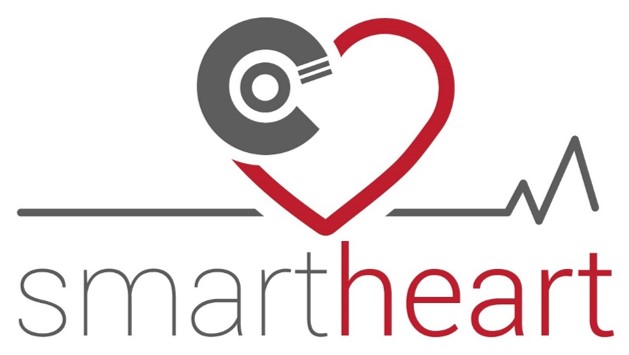Scientific Advisory Board
To access information about the 2022 SAB meeting, click here (password-protected).
The SmartHeart team have established an independent and external Scientific Advisory Board to provide advice, support and guidance to the research team. The SAB meets annually to evaluate progress and provide feedback on research plans, acting as a ‘critical mentor’ throughout the project.
The Board comprises:
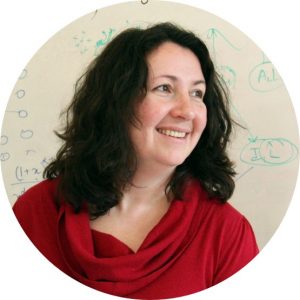
Professor Polina Golland
Polina Galland is a professor in the EECS Department and an associate director of the Computer Science and Artificial Intelligence Laboratory (CSAIL) at MIT. Her primary research interest is in developing novel techniques for biomedical image analysis and understanding. Her particularly interest is working on algorithms that either explore the geometry of the world and the imaging process in a new way or improve image-based inference through statistical modeling of the image data. I am interested in shape modeling and representation, predictive modeling and visualization of statistical models. Her current research focuses on developing statistical analysis methods for characterization of biological processes based on image information. In this domain, she is interested in modeling biological shape and function, how they relate to each other and vary across individuals.
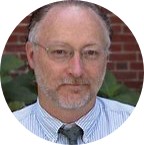
Professor William Mercer Wells III
I am a researcher in medical image analysis with the Surgical Planning Laboratory , a unit of the MRI division of the Radiology Department of Brigham and Women’s Hospital, Harvard Medical School. I maintain an active collaboration with the MIT Computer Science and Artificial Intelligence Laboratory, where I have worked with a talented group of graduate students.
My work has focused primarily on the analysis of structural and functional MRI, including segmentation and registration of MRI, with some emphasis on applications in image-guided surgery. My research in medical image registration concerns the use of Mutual Information as a criterion for image fusion. This approach has become the de-facto standard for multi-modality problems. Implementations of this method are available in 3D Slicer, our open-source platform for medical image analysis, and in ITK, an NIH sponsored segmentation and registration library. In addition to morphological analysis, I am also interested in univariate and multivariate analysis of functional MRI.
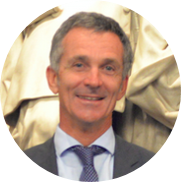
Professor Nicholas Ayache
I am a Research Director at INRIA , the French Research Institute of Computer Science and Applied Mathematics, where I lead the EPIONE project-team dedicated to e-Patients for e-Medicine.
I am also the Scientific Director of the new AI institute 3IA Côte d’Azur of which I hold a research chair, a member of the French Academy of sciences and a member of the French Academy of Surgery. My current research focuses on AI methods to improve diagnosis, prognosis and therapy from medical images and clinical, biological, behavioral and environmental data available on the patient.

Professor Matthias Friedrich
Matthias Friedrich is Full Professor and staff cardiologist at the McGill University Health Centre, where he is also Chief of Cardiovascular Imaging and Scientific Director of the Courtois Cardiovascular Signature Program. His research interest is focused on cardiovascular magnetic resonance (CMR) imaging. He is working with novel methods to visualize tissue pathology using native CMR techniques. He has more than 15,000 citations of his published papers. He is also involved in medical software development (cvi42, CMR Atlas for the iPad). Currently, he and his team are working on optimized, fast protocols for comprehensive CMR scans and on oxygenation-sensitive CMR for assessing coronary vascular function.
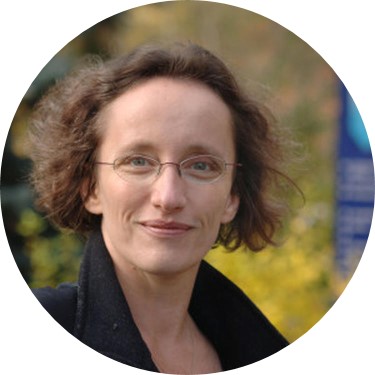
Professor Jeanette Schulz-Menger
Head of Cardiovascular MR Unit, Charité Universitätsmedizin Berlin
Prof. J. Schulz-Menger is a cardiologist by training and active in Cardiovascular Magnetic Resonance (CMR) since 1996. She is primarily interested in imaging inflammatory disease, cardiomyopathies and noninvasive hemodynamics applying CMR. She has a board certification in internal medicine and cardiology followed by board certification dedicated on CMR. Since 2004 she has led the Working Group Cardiac Magnetic Resonance at Charité Campus Buch. Furthermore, she established the department Non-Invasive Cardiac Imaging in the clinical environment. For research reasons she established a research outpatient department focusing on different kinds of cardiomyopathies.
Dr. Schulz-Menger is also interested in educating others about CMR: she was a founder and is the scientific director of the University Training Courses in Berlin. Furthermore, she is a partner of Circle Institute, a company dedicated to CMR-courses. Her group was able to establish a CMR-network throughout Germany. The group has published more than 170 peer reviewed articles.
She is an elected member of the faculty council of the Charite. Dr. Schulz-Menger served on the Board oft he ISMRM and was president oft he Society for Cardiovascular Magnetic Resonance (SCMR).

Professor Mark Ladd
Professor Mark Ladd is head of the Division of Medical Physics in Radiology at DKFZ. The Centre’s research plays a pivotal role in developing new and optimizing existing methods for imaging-based diagnostic and therapeutic procedures. The Ladd team develops new and optimizes existing biomedical imaging methods (MRI, CT, PET, optical imaging and ultrasound) for diagnostic and therapeutic procedures.
